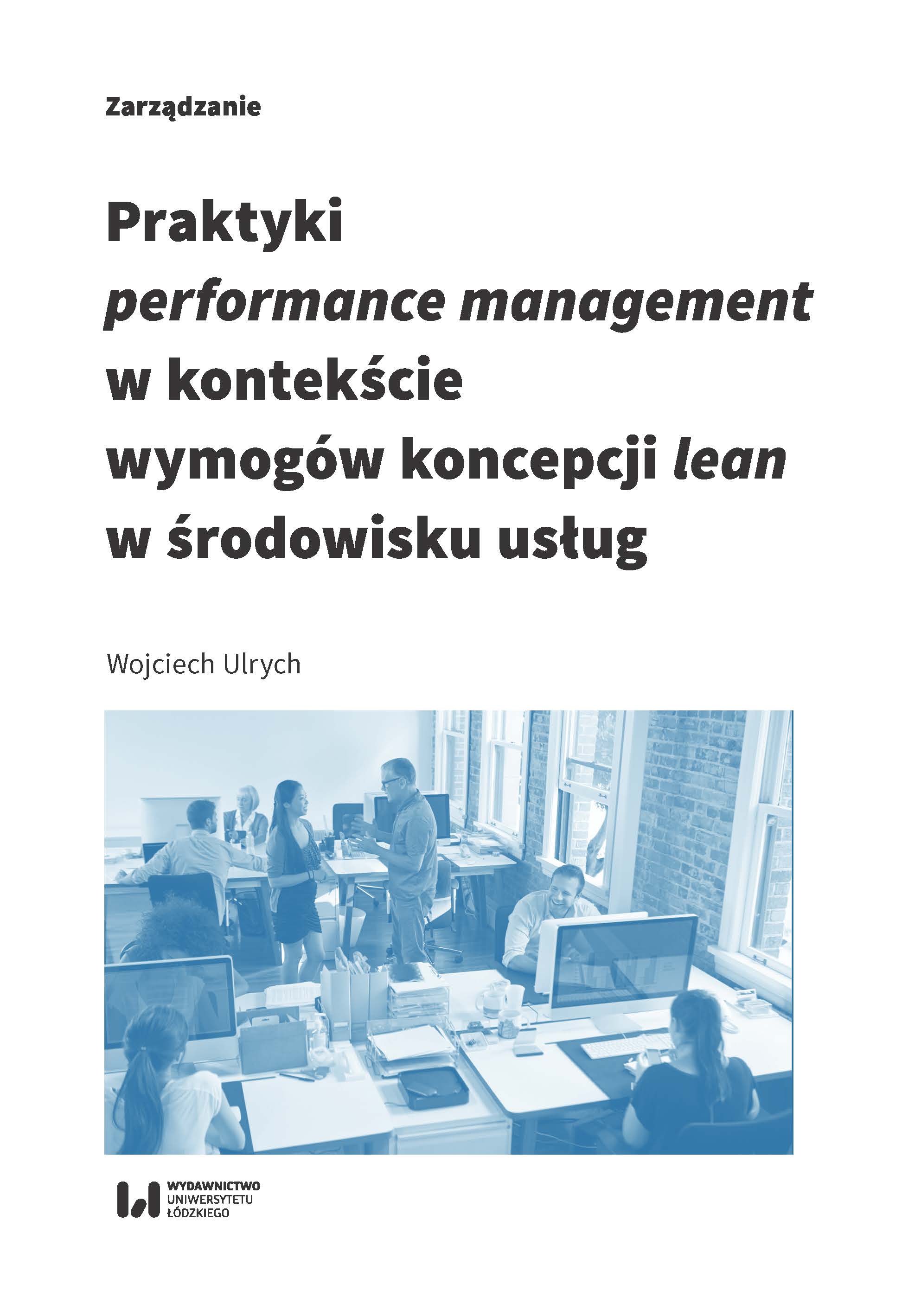Praktyki performance management w kontekście wymogów koncepcji lean w środowisku usług
Performance management practices and their influence on lean service requirements
Author(s): Wojciech Ulrych
Subject(s): Economy, Business Economy / Management, Human Resources in Economy
Published by: Wydawnictwo Uniwersytetu Łódzkiego
Keywords: performance management; lean service; lean management; HRM practices; human resource management; lean barriers; waste reduction; value-added activities
Summary/Abstract: The Performance Management (PM) concept has been well documented in the English-written human resource management (HRM) literature, but little has been written in Polish research. It has been found to be a driver for both achieving as well as improving individual performance. This is why the PM concept is a system-wide approach regarding individual performance that supports team and organizational performance. It therefore possesses strategic potential (a vertical approach) as well as supplying learning, development and a remuneration system (a horizontal approach). PM mostly includes HRM practices which are system-based and can be found in all kinds of organizations in a more or less formal way. Its characteristic feature mainly includes activities between a worker and a manager. This is why at its base PM is about trust, dialogue and positive reinforcement. PM is a supportive solution for lean services which incorporates all rules and most methods and techniques used in lean manufacturing. However a lean approach in itself is based on team-oriented solutions. It can also motivate employees to move freely among workstations, to stand in for absentees or to help others in the work process, and most of all, to transfer managerial control to more employee autonomy. In general lean goes against some PM practices like stiff job descriptions, performance appraisals and individual pay-for-performance. In these circumstances it was not clear whether the European-oriented PM system would meet the Japanese-oriented lean approach in terms of value-added services (e.g. waste reduction) and to overcome lean service barriers. The lean literature states that it is unreasonable to bring collective management concepts like lean management into an individualised-oriented work environment. // Koncepcja szczupłego zarządzania (lean management) prowadzi do ograniczania marnotrawstwa i tworzenia wartości dla klienta. Sprawdziła się ona w produkcji, ale czy taki sam sukces może osiągnąć w środowisku usług? Cechy usług wskazują bowiem na trudności w ich standaryzacji oraz na wymóg jednoczesnego świadczenia usług i ich konsumpcji przez klienta. Tymczasem lean podkreśla wagę zespołowego działania i postuluje ograniczanie istotnych indywidualnych praktyk zarządzania efektywnością pracownika (performance management), takich jak opis stanowiska pracy, wynagradzanie indywidualnej efektywności, zrezygnowanie z oceny okresowej. Czy zatem w świecie zespołowego, szczupłego zarządzania nadal jest miejsce dla systemowego zarządzania indywidualną efektywnością pracy? W publikacji omówiono wpływ praktyk performance management na realizację wymogów lean w środowisku usług (lean service). Wynikiem po¬wiązania obydwu koncepcji było opracowanie globalnego modelu PM-LS. Wskazuje on, że istnieje zestaw praktyk performance management, który ogranicza bariery wdrażania lean w usługach i wpływa na ograniczanie marnotrawstwa w badanych działach funkcjonujących w środowisku usług.
- Page Count: 260
- Publication Year: 2018
- Language: Polish
- Table of Content
- Introduction
- Sample-PDF
- eBook-PDF

